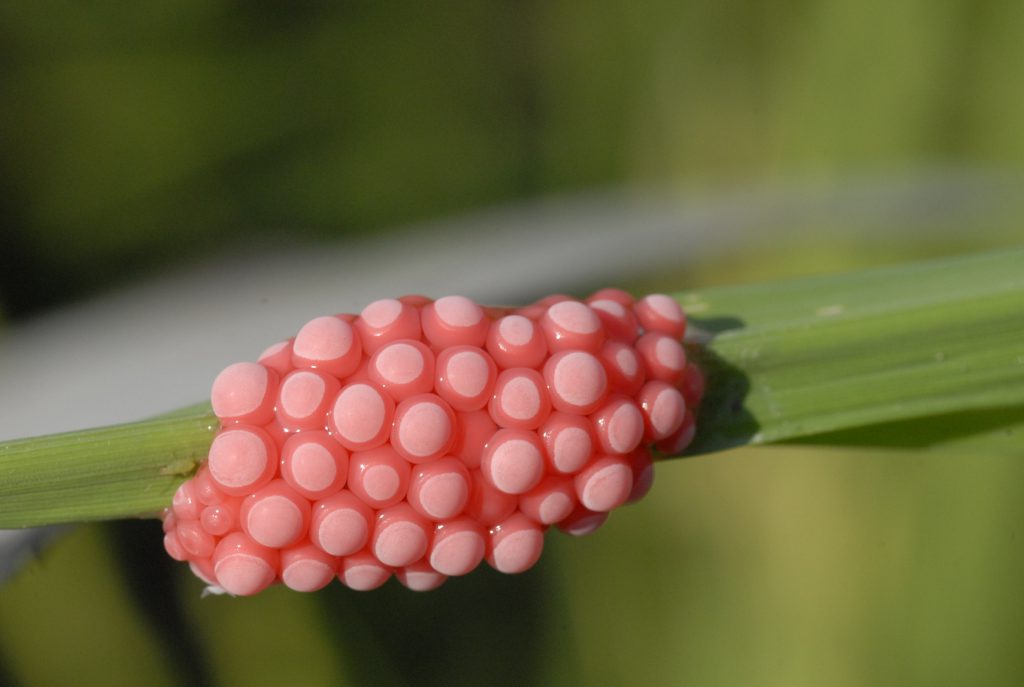
“The trick: if the soil is saturated and golden apple snails (GAS) cannot swim, then they cannot damage the rice.”
This is how Leonardo V. Marquez, expert from PhilRice Crop Protection Division, simplified the results of their 2017 study that showed controlled irrigation as the most practical and effective management strategy against GAS infestation.
Results show that for transplanted and direct-seeded rice, saturated field condition treatment yielded higher or comparable seedling survival rate of 99% and 92% than plots with standing water (0% and 15%) and synthetic molluscicide (snail baits) application (81% and 93%).
While the study shows high effectiveness of using molluscicide, PhilRice researchers advocate the cultural ways in managing the pests as they are less expensive. Cultural management include controlled irrigation and biological control like preserving kuhol’s natural enemies.
“Chemicals should be farmers’ last resort. Farmers spend P400-500/ha for molluscicide. With cultural practice, farmers can dodge this amount, along with the cost of replanting GAS-damaged crops and unnecessary irrigation,” Marquez said.
In the study, plots were treated with different irrigation water levels, synthetic molluscicide, azolla (a kind of biofertilizer), botanical molluscicide, and different basal fertilizer application. Treatments were tested in transplanted and direct-seeded rice where 10 GAS/ sqm were released. The observation of seedling survival was done up to 15 days after transplanting and 25 days after sowing.
Neither adding azolla in the field as alternative feed for GAS nor applying basal fertilizer were effective. Chopped botanical molluscicide (sambong leaves, gabing uwak plant, neem tree leaves) was not also effective. However, further studies are recommended to test the effect of extracted, rather than chopped, active ingredients.
Studies show that a kuhol can damage up to 19% of young rice plants per sqm and that managing GAS is critical from seedling to tillering – the stages when the mollusk is most destructive to rice plants.




